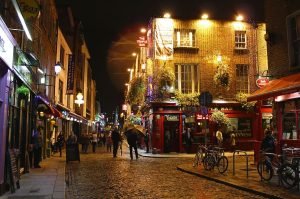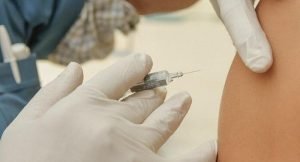What you can or cannot do to safely enjoy yourself at indoor venues from October 22

More than a year has passed since COVID-19 restrictions were introduced in Ireland. October 22 was supposed to mark ‘Freedom Day’, an end to lockdown and all the measures people were asked to take in line with it.
Just as the country was about to resume its nightlife and full-fledged indoor events, COVID cases began to peak again. In the past few weeks, ICU cases and hospitalisations have shot up with 2,399 cases being reported on October 19.
What the experts recommended
On the previous day, the National Public Health Emergency Team (NPHET) met with Chief Medical Officer, Dr Tony Holohan to analyse the data around the virus. Following this, they wrote a 12-page advisory letter to Stephen Donnelly, the Minister for Health.
In the letter, Dr Holohan and his peers cautioned the government about the risks surrounding the spread of the Delta variant and called for a pause on easing restrictions. It recommended the continued use and serious enforcement of vaccine certificates which, in their opinion, has not been implemented properly in the hospitality sector.
During a press conference held on October 19, Taoiseach Micheál Martin, Tánaiste Leo Varadkar and Minister for the Environment, Climate and Communications Eamon Ryan addressed the nation with an updated agenda for Freedom Day.
In light of this, here’s what you do or do not need to leave out of your social plans for this winter.

Yes, the masks will stay on
In line with the advice from the medical team, certain COVID rules are expected to stay in place until February next year. While more indoor and outdoor activities will be promoted, it will also be regulated with the following protocols.
Vaccine Certificates and Antigen Tests
To businesses that will be opening on October 22, Leo Varadkar stressed on the importance of demanding vaccine certification from their customers. He said, if you are bringing people indoors, ensure that they are vaccinated.
He also urged those who are yet to get their second shot to make sure they do so at the earliest. Antigen tests are also expected to play a more important role and will be sent to those who have come in contact with those who are infected. The tests will also be used to ensure safety during events and activities.

Masks and social distancing
Also expected to remain as a safety precaution for the masses until February is wearing masks and practising social distancing indoors. Suggested by the NPHET, these rules are to be followed in any closed space like supermarkets and public transports in addition to proper ventilation to keep a check on the virus.
Changes to expect on Freedom Day
The Taoiseach reassured people that everything that has opened will remain open. With certain alterations, the anticipated ease of lockdown is expected to go forward. Here are the tweaks the officials have brought to it.
The hospitality sector
With protective measures in place, businesses operating in the hospitality sector will be allowed to function without any limit of capacities as long as a vaccine or COVID test certificate is produced.
Only 10 adults or 15 with children will be allowed to be seated on a table. Table service will continue to be a norm in pubs and restaurants alike.In addition to standard measures, groups of vaccinated and unvaccinated people are to be split into groups of 6.
In nightclubs, contact tracing will be followed, in addition to the strict use of face masks when people are not eating or dancing.

Social and recreational events
Anticipation builds in the sports world as Ireland’s rugby team is bracing themselves to welcome international teams to play in the country. There will be no changes in these games, as long as the vaccine and mask rules are enforced.
Weddings and funerals will now be allowed to have more than 100 guests. Live entertainment like concerts, plays or sporting events will require audiences to be fully seated.
Back to the workplace
Companies have been given the green light to resume in-office work, albeit in a phased manner. Proof of vaccination or recovery will be required at every stage. It has also been stressed that those who have the option of working at home should be encouraged to do so.
Travelling internationally
Hotel quarantines will be a thing of the past and travellers will no longer need to quarantine themselves at home. As in the other cases proof of vaccination or a negative test certificate will be required in order to fly into the country.
The NPHET letter warns that cases could climb up to 1000 by November if the current trend is to continue. If the proposed changes and revisions are not strictly carried out by individuals and establishments, it runs the risk of cases worsening. So the next few months are crucial to determine whether there will be a need to impose restrictions again in the future.
So this Friday, keep the rules in mind and follow basic protocol to make sure that every day can be Freedom Day!